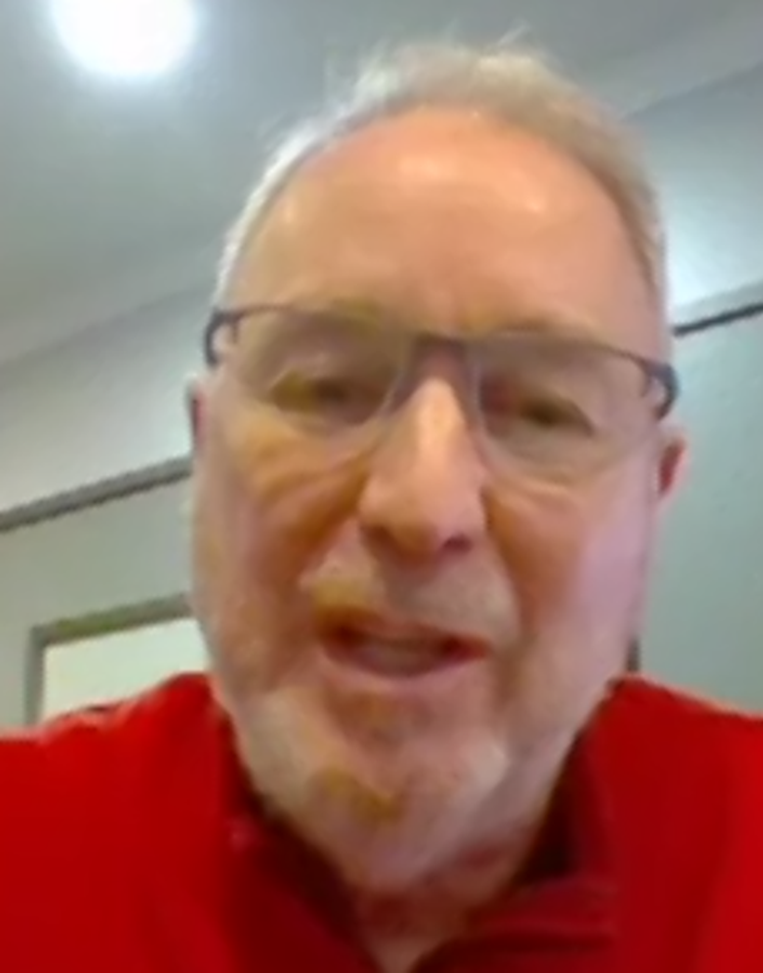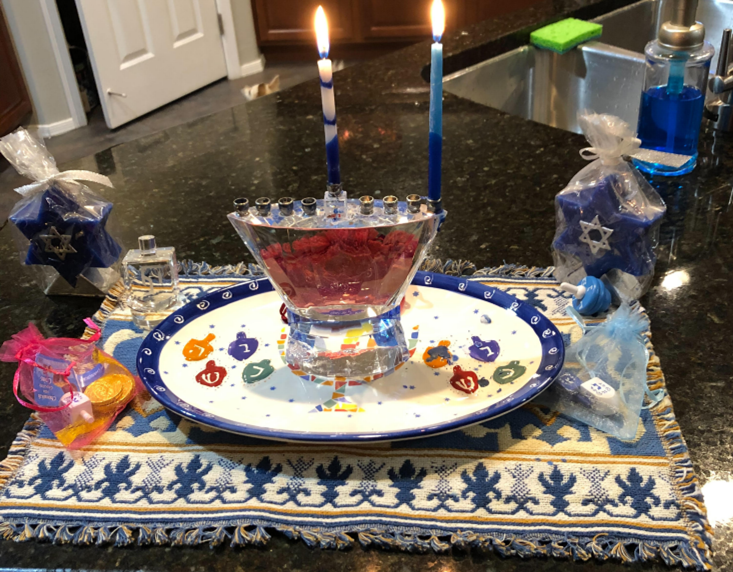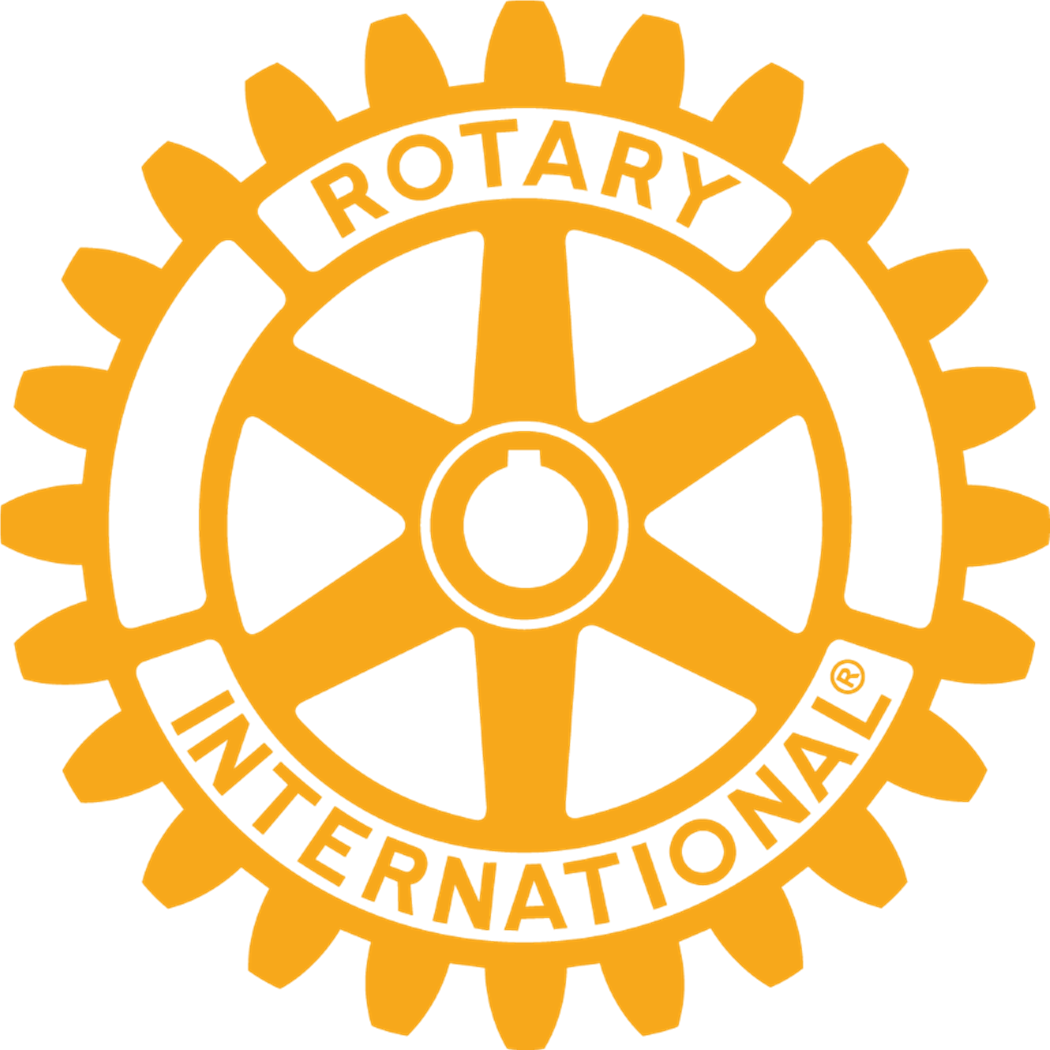 Prior to start of meeting, Lu General told those who had arrived early about a book written by Tom Carroll, an active Rotarian in our Zone. It is contemporary fiction. The name of the book is Colt's Crisis. Tom is a former Assistant Rotary Coordinator and current New Club Development lead for Zones 26-27. He is a Past District Governor from District 5020 in Washington. He served as DG in 2017-18. Lucinda says, "He is a great guy - a class act." Tom's website is https://tomcarrollbooks.com/about/ The book is also available on Amazon.
Prior to start of meeting, Lu General told those who had arrived early about a book written by Tom Carroll, an active Rotarian in our Zone. It is contemporary fiction. The name of the book is Colt's Crisis. Tom is a former Assistant Rotary Coordinator and current New Club Development lead for Zones 26-27. He is a Past District Governor from District 5020 in Washington. He served as DG in 2017-18. Lucinda says, "He is a great guy - a class act." Tom's website is https://tomcarrollbooks.com/about/ The book is also available on Amazon.Erwin Reimann was asking about food services he could donate to. Members on the call gave him several options. Some Prescott Rotarians came up with a website where people can donate on-line with Rotary getting recognized for their donation. The money goes to a food network in the state.
 Call to Order - Dan Coons
Call to Order - Dan CoonsAt noon, President Dan Coons introduced himself as he called the meeting to order and followed his familiar practice of reciting the 2020-21 Rotary Theme
"Rotary Opens Opportunities."
He also recited the Rotary Vision Statement:
Together we see a world where people unite and
take action to create lasting change -
across the globe, in our communities and in ourselves.
He then asked Geoff White to offer the invocation.
Rotary Minute - Jack Rosenberg
 Jack explained that Judaism is not just a religion, it is also a nationality and a culture. Rotary clearly endorses international understanding, different cultures, and diversity in the world. Jack took his Rotary Minute to explain the meaning of Chanukah, behind the "Menorah." Chanukah commemorates the miracle of a one-day supply of oil in the Temple lasting eight days. That was the amount of time it took to get more oil after the Temple was desecrated during a battle between the Syrians and the Maccabeans jin 165 B.C.E.
Jack explained that Judaism is not just a religion, it is also a nationality and a culture. Rotary clearly endorses international understanding, different cultures, and diversity in the world. Jack took his Rotary Minute to explain the meaning of Chanukah, behind the "Menorah." Chanukah commemorates the miracle of a one-day supply of oil in the Temple lasting eight days. That was the amount of time it took to get more oil after the Temple was desecrated during a battle between the Syrians and the Maccabeans jin 165 B.C.E.  Lighting the Chanukah Menorah commemorates this miracle. You are supposed to light one candle each night of Chanukah just after dark, except on Friday, when the Menorah is lit before dark to avoid lighting on Shabbat. The candle that is raised or in the center of the Menorah is the shamash (helper candle). It's the one you use to light the other candles. It is lit first. The other candles are not used to light each other. There are eight candles to light. Each night one candle is added, beginning on the far right, and added from right to left. Each evening when they are lit, The newest candle is lit from the shamash first then the others are lit left to right. On the eight night, all of the candles will be lit starting at the far left.
Lighting the Chanukah Menorah commemorates this miracle. You are supposed to light one candle each night of Chanukah just after dark, except on Friday, when the Menorah is lit before dark to avoid lighting on Shabbat. The candle that is raised or in the center of the Menorah is the shamash (helper candle). It's the one you use to light the other candles. It is lit first. The other candles are not used to light each other. There are eight candles to light. Each night one candle is added, beginning on the far right, and added from right to left. Each evening when they are lit, The newest candle is lit from the shamash first then the others are lit left to right. On the eight night, all of the candles will be lit starting at the far left.December 10 was the first night of Chanukah this year. Jack shared a picture of their Menorah taken that evening.
Happy Bucks - Colleen Coons
- Colleen pledged $15 - $5 for each of the three days their son, Nicolas, would be home next week. Nicolas would be spending one of the days with Frank Rosenberg taking his life-saving course.
- Allan Cady pledged $10 - $5 to explain by Polly was absent from the meeting. She had gone to the airport to pick up Colin Nagle - the father of her first inbound Rotary Youth Exchange student. $5 for the sponsor program which is kicking off now. He is confident we will do a good job again this season.
- AG Lee Holmes pledged $20 sad dollars. His baby brother was taking a tree down in a back yard. A tree branch fell and hit him in the face. He succumbed to his injuries.
- Lu General told Lee every one of us were virtually hugging him.
- Colleen pledged another $10 to support Lee.
- Dan Coons pledged $5. He sent an e-mail with the constitution and bylaws for both the club and the club's charitable foundation. He received several compliments on the great cover message. He said the 4-Way Test required that he give credit to Jeanie Morgan for being the one who actually wrote it.
 Everyone on the call seemed to enjoy Lu General's reindeer appearance.
Everyone on the call seemed to enjoy Lu General's reindeer appearance.- Carla Krzmarik pledged $5 for the very nice party on December 5 featuring her formal induction into Mesa West Rotary as well as recognition of major donors who had supported PDG David Simmer's Connect Through Giving campaign to raise funds for The Rotary Foundation in 2019-20.
- Chris Krueger pledged $10 for making her dad feel welcome at the December 5 event.
- Frank Rosenberg pledged to make a $20 donation for each Rotarian referral to his business. His carpet cleaning business has been very busy and they are adding the additional services of air duct and dryer vent cleaning. CLICK HERE for a link to a flyer about Frank's business.
- Warren Williamson pledged $10 - no-one called him Wendell at the party at Pam's house. He explained an easy way to tell them apart. Wendell doesn't drink beer and Warren doesn't chase cows.
- Shelly Romine pledged $10 - making calls for the Arizona Cares service project and hearing the stories of the individuals she called has reminded her to be thankful for what she has. So many people are having tough times right now.
Announcements
- President Dan thanked members for being generous with their time and filling more bell-ringing shifts than has been necessary in the past. He was very proud of the club for responding readily when e-mails have been sent by Don LaBarge listing shifts that remained unfilled.
- Allan Cady has officially kicked off the 2020-21 Sponsor Program. The first year we did the program, a goal was set to raise $30,000. We raised closer to $40,000. The second year, the goal was $40,000 and we raised $54,000. Allan has recruited six captains, and the membership will be divided and assigned to each of the captains. For some, this may be a better time for giving, but Allan recognizes that for many it will be more difficult. Past donations have ranged from $25 to $7,500. Allan is excited we are doing it again. The established $30,000 goal is modest, and he believes we will exceed it. $5,000 is already in. He has not set a firm end date of the campaign. He hopes to reach or exceed the goal by the end of the first quarter of 2021, but if donations are still coming in, they may extend the drive into the later months of this Rotary year.
- President Dan announced that December 17 will be a club assembly. He asked everyone to read the email he sent December 9. If you did not read it and cannot find it, CLICK HERE to e-mail Jeanie so she can send you a copy and the documents that were attached. PLEASE ATTEND DECEMBER 17 MEETING.
- The program committee could use some ideas. The first Thursday in January is covered, but the calendar is open after that. CLICK HERE to Contact Wendell Jones if you have a program suggestion.
Presidential Humor
- If a country-western song is played backward, the singer's dog comes home, his wife comes back, and his pickup starts running.
- Dan asked if anyone would like to hear a construction joke, then said "I'm working on it." He said we could credit or blame Lola for that one.
Program
 Shelly Romine introduced Jessica Sepulveda who serves as Sponsor Relations Coordinator with Habitat for Humanity - Central Arizona Division.
Shelly Romine introduced Jessica Sepulveda who serves as Sponsor Relations Coordinator with Habitat for Humanity - Central Arizona Division.Jessica explained Habitat for Humanity is a global nonprofit housing organization working in local communities across all 50 states in the United States and in more than 70 countries throughout the world.
She burst the myth that Habitat was founded by President Jimmy Carter. It was founded in 1976 by Millard Fuller and his wife Linda. The concept that grew into Habitat for Humanity International was born at Koinonia farm, a small interracial Christian community farm outside of Americus, Georgia. That was founded in 1942 by Clarence Jordan, a farmer and biblical scholar.
The Fullers first visited Koinonia in 1965. At Koinonia, they developed the concept of "partnership houssing." The concept centered on those in need of adequate shelter working side by side with volunteers to build simple, decent houses.
In 1968, Koinonia laid out 42 half-acre home sites with four acres reserved as a community park and recreation area. Capital was donated from around the country to start the work. The homes were built ant sold at no profit to families in in need on no-interest loans from the donated funds. As the funds were repaid, they were used again and the revolving fund was called "The Fund for Humanity." The new homeowners worked side by side on their house, providing "sweat equity" to obtain ownership of their home.
Fuller went on to test the idea in the African country of Zaire, now known as the Democratic Republic of the Congo. Within 3 years, he had built more than 120 houses and got the idea that this would work most everywhere in the world and founded Habitat for Humanity in 1976.
In addition to new construction, Habitat for Humanity also works in different ways to create decent, affordable housing including:
- Renovating existing homes
- Helping people repair and improve their homes and neighborhoods
- Works with local communities to address needs after natural disasters
- Advocacy to raise awareness and support for decent and affordable housing around the world.
Habitat for Humanity Central Arizona is an affiliate of the international organization. They have been active in Arizona for 35 years. They are Arizona's top nonprofit homebuilder. They have partners to build, repair and renovate more than 1164 hoes since 1985. A You-Tube Video - Homeless to Homeowner was suggested. The link to it is https://www.youtube.com/watch?v=WbogE8aX_ww.
The change in quality of life and independence is very dynamic as is the tangible sense of being part of a caring community.
The process actually works by families going through a selection process to determine
- The applicant's level of need
- Their willingness to partner with Habitat
- Their ability to repay a mortgage through an affordable payment plan.
The invest hundreds of hours of their own labor, called sweat equity, working alongside volunteers and other Habitat homeowners, in addition to paying an affordable mortgage and receiving financial education. The selection process is nondiscriminatory.
An example of Habitat for Humanity at Work is their revitalization of the Canyon Corridor - from Bethany Home Road to Campbell Rd and I-17 to 43rd Ave. The revitalization has involved 285 unique families, 662 repairs, and over 4,800 volunteers contributing over 24,000 volunteer hours.
Habitat for Humanity ReStores are nonprofit home improvement stores and donation centers. They sell new and gently used furniture, home accessories, building materials and appliances at a fraction of the retail price.
Habitat's deconstruction service enables homeowners and businesses to offset their remodeling costs. Deconstruction services remove kitchen cabinets, appliances, bathroom fixtures and doors from a space before remodel or reconstruction. They identify materials and items suitable for reuse. The work is handled by the deconstruction team. Thee salvaged items are donated to Habitat ReStores and sold to support the Habitat mission. Donors receive a tax receipt for the donation.
Habitat is a Christian organization - a global, nonprofit ecumenical Christina housing organization. All who desire to be a part of what they do are welcome regardless of religious preference or background. Becoming involved in Habitat is a great way for faith groups to come together.
Home sponsors are an important part of their ability to serve more families. In addition to providing funding for the construction, sponsors are invited to work alongside the homeowner and other volunteers as well as attend groundbreaking and dedication ceremonies.
President Jimmy Carter may not have founded Habitat for Humanity but he remains an active volunteer and advocate.
CLICK HERE to view Jessica's slides and notes presented during the meeting.

